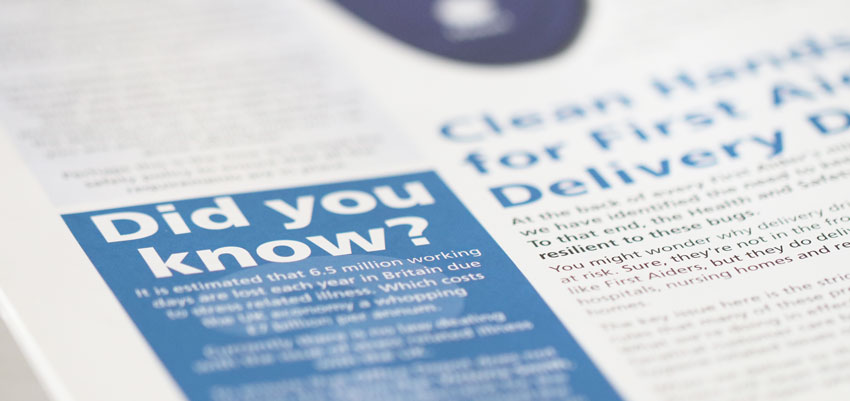This is pet-hate time. I’m talking about those trivia snippets dropped into the pages of staff and customer newsletters. You can’t miss them because the headline is always the same: ‘Did you know?’
Somewhere buried beneath those three innocuous words is a nugget of vital information – some facts or stats that readers really need to know. Or do they?
The yes-no question that demands an answer
Before we think about the usefulness of the information, let’s look at that question-and-answer format: ‘Did you know?’
The answer has to be ‘yes’ or ‘no’. And the only way you can answer is by reading the snippet. The did-you-know format forces everyone to read on without knowing if this hidden knowledge-fest is remotely useful to their lives.
- Yes: The wrong answer. Sorry, we already knew that a cat has 32 muscles in each ear. You’ve wasted our time and we’ve learnt nothing new.
- No: Whoops of joy: this is the answer the writer was hoping for. No, we had no idea that sleeping burns more calories than watching the telly. The trivium (yep, trivia in the singular) has landed. Trouble is, we don’t care.
Ask a better question
‘Did you know?’ is the wrong question. What that writer should have been asking is ‘Do you need to know?’.
If the answer is ‘yes’, don’t bury the information, print it big and clear: ‘Don’t peel your fruit – most of the vitamin C is in the skin’.
And if the answer is ‘no’ – why on earth are you wasting your readers’ time with irrelevant tosh about emus being unable to walk backwards.
Be an efficient imparter of information
Your readers are short of time. Most will only skim your work; some rarely read beyond the headline. Help them out. Turn useful information into easily digestible headlines with short explanations for those with time to delve deeper.
Be a copywriter who’s on your readers’ side, not a show-off fact-collector. Put valuable information where your readers can see it and save the trivia for the pub quiz.
Facts vs alt-facts
I’ve no idea if the random facts you’ve just read about cats’ ears, sleeping, fruit skins, and emus are valid. I lifted them from a did-you-know website to make the point that anyone can rattle off knowledge without any guarantee that it’s true.
EXAMPLES
The did-you-knows to the left below are from a staff newsletter. My suggestions for more effective internal communications are to their (alt-)right. But are these useful facts or bland page-fillers? It all depends on the context.
Did you know?
Around 6.5 million working days are lost each year in Britain due to stress-related illness. It costs the country a whopping £7 billion a year.
Stress costs the UK £7bn a year
That’s the cost of the 6.5 million working days we lose each year from stress-related illnesses.
Did you know?
95% of the energy used by the UK’s mobile phone chargers is wasted energy. Only 5% is actually used to charge phones, the bulk of the energy is consumed when the charger is plugged into the wall, but not switched off at the socket. That’s over 50,000 tonnes of carbon dioxide emissions that could be avoided if we all just unplugged our chargers after use.
Unplug your phone charger to cut its energy use by 95%
Most of the energy used by the UK’s mobile phone chargers is wasted. Only 5% tops up the nation’s phone batteries, the rest is consumed when people leave their chargers plugged in and switched on at the socket. If we all unplugged our chargers, we’d save over 50,000 tonnes of carbon dioxide every year.
Did you know?
Seventeen million working days are lost each year through alcohol misuse, and 25% of all accidents at work are believed to be drug or alcohol related.
Alcohol puts workplace safety at risk
Around a quarter of all accidents at work are drug or alcohol-related. And the country loses 17m working days each year through alcohol misuse.



